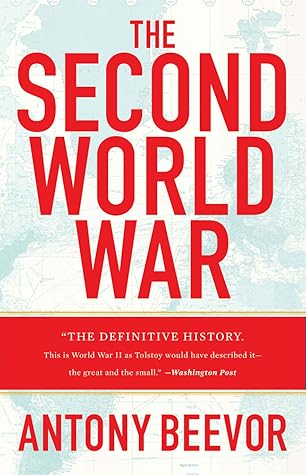More on this book
Community
Kindle Notes & Highlights
The officer corps, which had prided itself on an apolitical tradition, also allowed itself to be wooed by the promise of increased forces and massive rearmament, even though it despised such a vulgar, ill-dressed suitor. Opportunism went hand in hand with cowardice in the face of authority.
His policy of aggression was stated clearly on the very first page. Yet even though every German couple had to purchase a copy on marriage, few seem to have taken his bellicose predictions seriously.
Alliances are complicated enough in victory, but in defeat they are bound to produce the worst recriminations imaginable.
The United States ambassador, William Bullitt, was so trusted by the French administration that he was temporarily made mayor and asked to negotiate the surrender of the capital to the Germans.
A quarter of them came from countries overrun by the Nazis as well as from the Dominions: Canada, Australia, New Zealand, Rhodesia and South Africa. There were so many Canadians that they formed separate RCAF squadrons, and so later did men from other countries, such as the Poles and French.
It was a young man’s war. Even a thirty-one-year-old pilot was nicknamed ‘Grandpa’.
‘You must leave your imagination behind or it will do you harm.’
Field Marshal Brooke once wrote in his diary: ‘It is astonishing how petty and small men can be in connection with questions of command.’
The surgeon-general of the US Army estimated that American front-line forces suffered a 10 per cent rate of psychiatric breakdown.


